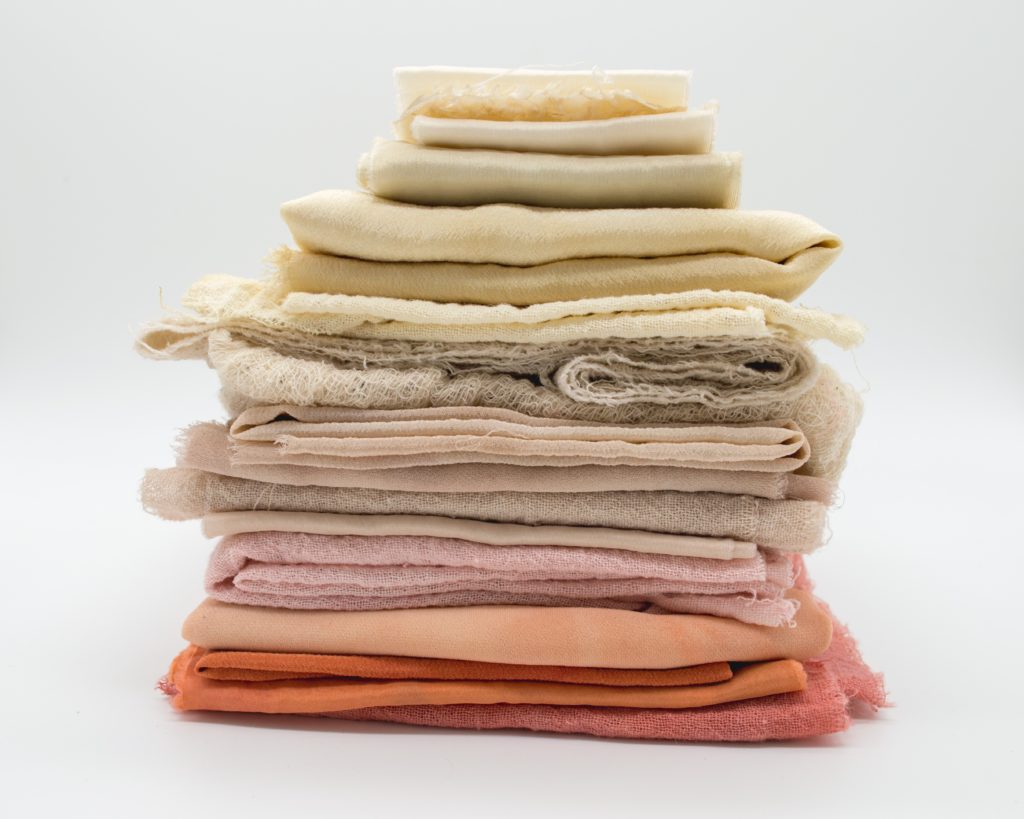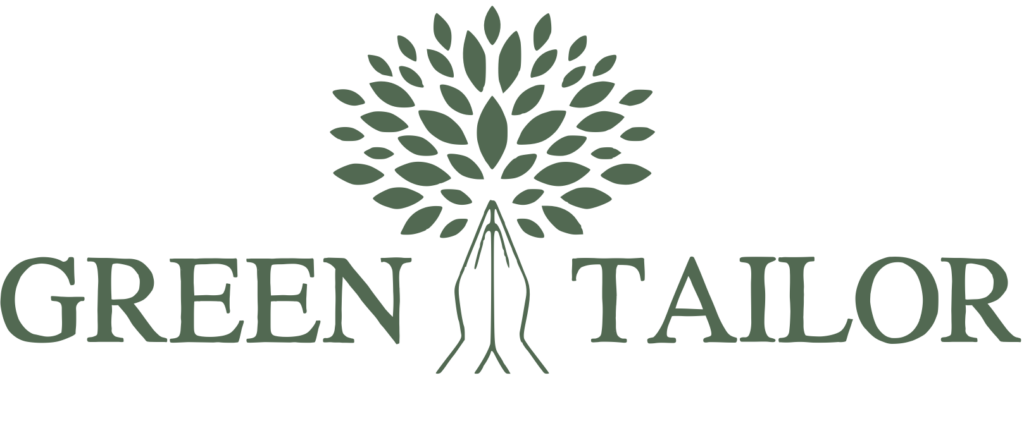Nowadays, people tend to be more aware of alternatives in textile production since it is a very polluting industry. Indeed, clothing consumption produces a huge amount of CO₂ and uses water in an excessive manner. In order to be more sustainable, we can go for natural and organic textiles, we can go for recycled fibers or second hand garments.
But have you ever heard of natural dyeing?
Most of the designers or textile producers who are choosing natural dyers are in fact returning to the old sustainable natural coloring methods.

What is Natural Dye?
Natural dyes are derived from plants (roots, stems, leaves, flowers), insects, minerals, or organic sources. Before the arrival of synthetic dyes in the middle of the 19th century, natural dyes were everywhere in the world. The first synthetic dye, mauve, was accidentally discovered by English chemist William Henry Perkin in 1856 while trying to make quinine. In fact, we have proof of its existence from ancient civilizations (India, China, and Egypt, for instance).
A dye is a colored substance that has an affinity for the substrate to which it is applied. Some plants may have more than one color depending on which part of the plant is used for extraction. Dyes must be applied to textiles with the help of a mordant to improve the fastness of the dye on the fiber, except for a few particular plants, such as indigo and tannin plants, for instance.
The Differences between Natural and Synthetic Dyes
Synthetic dyes are directly derived from petroleum, and they need a lot of energy to be produced. The vast majority of dyes are synthetic, and let’s be honest, it is not possible to think of removing them at all in the industry. In the past 30 years, synthetic dye production has decreased in the United States, Western Europe, and Japan, but has increased in Asian countries, especially China, India, and South Korea. Because it helps spread colors in many industries, dramatically reducing the cost and time of production.
But using synthetic dyes can cause many health problems, such as respiratory diseases and irritation to your skin, and the list is very long, such as the list of chemicals used in this industry. Nowadays, many harsh chemicals have been banned in the textile industry, but in 10 years, many more currently used may also be banned.
These synthetic dyes also have a strong impact on the environment. Indeed, the clothing industry is now consuming tons of water and thousands of different chemicals, some of them very toxic, are used, and still, in many countries, dirty water is thrown in nature. According to DNB asset management, over 20% of water pollution is caused by the textile industry worldwide.
Why should you prefer natural dye?
On the contrary, natural dyes respect and follow the rules of nature. They are biodegradable and very safe for our skin and the environment. Most natural dyes are very safe for the skin, and many even have antimicrobial and antifungal, anti-inflammatory, antioxidant, and hypoallergenic properties. In fact, most of the plants used are also medicinal plants.
People with allergies find more interest in clothes made with natural dyeing because of the toxic components of synthetic clothes. It involves taking care of your fabrics and clothes even more. For instance, naturally dyed clothes last longer if they are washed with ecological washing powder. Moreover, natural dye is not compatible with all kinds of clothes. With these eco-friendly fabric dyes, you will feel safe and not get any health-related issues.
We are at the edge now of an era where we could also lose all the skilled people able to do natural dyeing in this world if we don’t encourage the production. Of course, producing in natural colors brings a lot of challenges, such as time of production, higher cost, color fading, complex dyeing process, and color variations to be accepted. We definitely agree on the fact that it will never replace synthetic dyes again, but here we dream of a world where all the different alternatives mentioned above can actually play a big part in the future of the textile industry.
End point
We hope that all these elements have raised awareness for you. We deeply encourage alternatives to protect the environment, and the use of natural dyes is one of the solutions.
At Green Tailor, we offer a large variety of fabrics and products ready to dye. We provide the raw material for any natural dyer to express their art. We can also help you develop your natural dye collections. We are convinced that natural dyes can be a strong alternative to protecting the environment and ourselves. And you? Contact us at [email protected] if you want more information!
References :
https://www.textilemates.com/natural-dyes-importance/
http://www.keycolour.net/blog/advantages-disadvantages-natural-dyes/
https://maiwa.com/pages/natural-dyes
http://www.greenmattersnaturaldyecompany.com/why-natural-dyes-1
